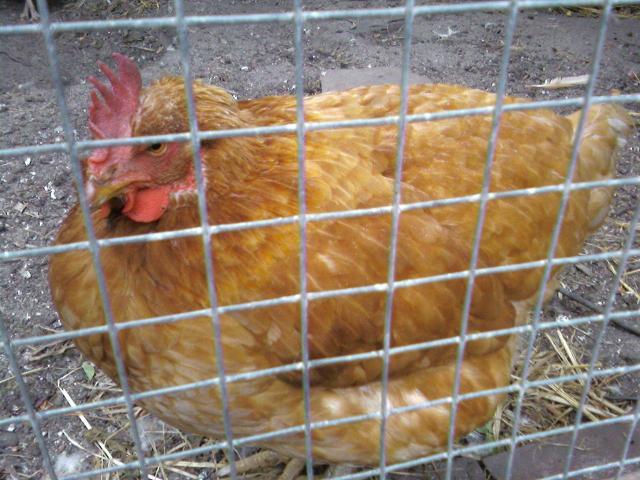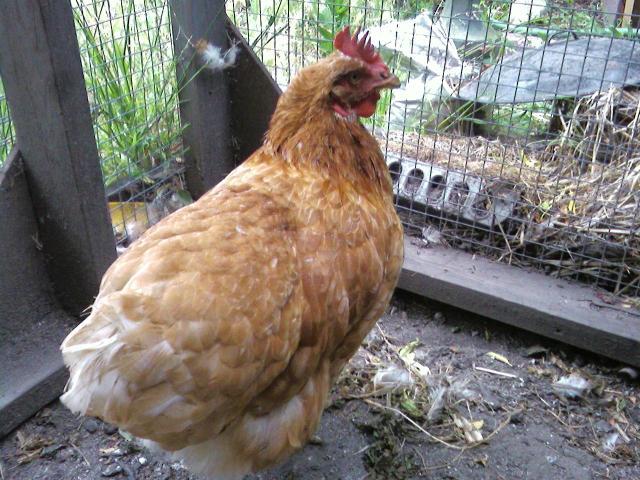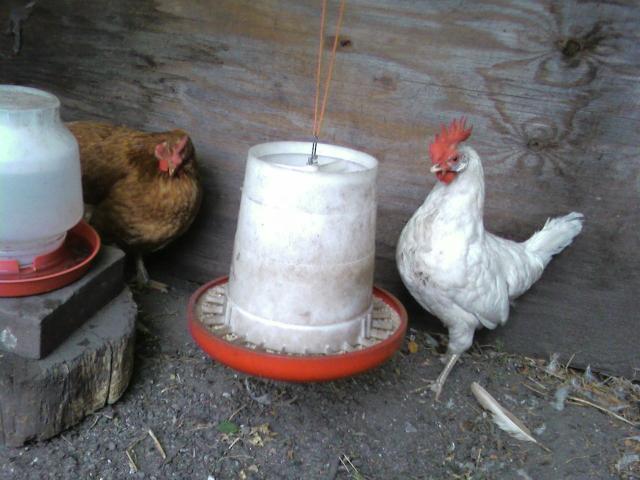- Jun 15, 2009
- 4
- 0
- 7
just changed the subject to more accurately reflect what's going on...
Hi,
I've had my chickens for about a year. When I got them they were just over a year old and laying everyday. I have two white leghorns and one brown chicken whose breed I don't know.
the leghorns still lay everyday but 2 months ago the brown hen just stopped laying. previously to stopping she was laying almost everyday, there was no gradual decrease. other than that she had been appearing totally healthy, eating and drinking, scratching, eating greens, etc.
for the last few weeks I've been noticing she's been looking more and more, well, puffy. it's not quite that her feathers are sticking up, she's just looking larger and fluffier. and tonight I found her outside on the steps to her coop, long after the others had gone inside to sleep (it was full dark). she was just standing there, a little hunched over, eyes open, as puffy as ever. I shined a light on her and she didn't move, so I picked her up and put her in the coop. she felt fine, solid, not hot to the touch or rigid.
as a side note which may be related, I've had problems with rats eating the feed at night, so I've been pulling up the feeder at dusk and dropping it back down in the morning for the last 3 days. she seemed to be facing the area where the rats enter the enclosure. may be coincidence.
please help! thanks.
Hi,
I've had my chickens for about a year. When I got them they were just over a year old and laying everyday. I have two white leghorns and one brown chicken whose breed I don't know.
the leghorns still lay everyday but 2 months ago the brown hen just stopped laying. previously to stopping she was laying almost everyday, there was no gradual decrease. other than that she had been appearing totally healthy, eating and drinking, scratching, eating greens, etc.
for the last few weeks I've been noticing she's been looking more and more, well, puffy. it's not quite that her feathers are sticking up, she's just looking larger and fluffier. and tonight I found her outside on the steps to her coop, long after the others had gone inside to sleep (it was full dark). she was just standing there, a little hunched over, eyes open, as puffy as ever. I shined a light on her and she didn't move, so I picked her up and put her in the coop. she felt fine, solid, not hot to the touch or rigid.
as a side note which may be related, I've had problems with rats eating the feed at night, so I've been pulling up the feeder at dusk and dropping it back down in the morning for the last 3 days. she seemed to be facing the area where the rats enter the enclosure. may be coincidence.
please help! thanks.
Last edited:





